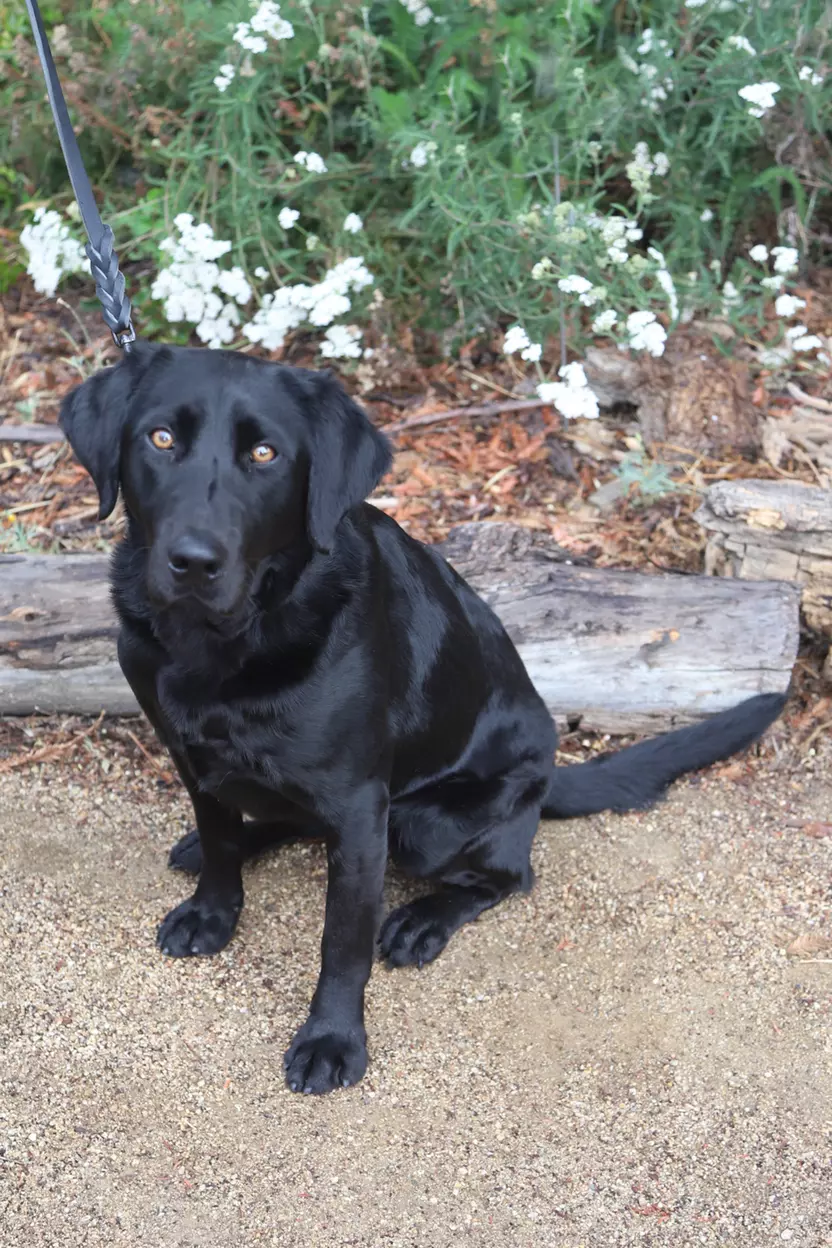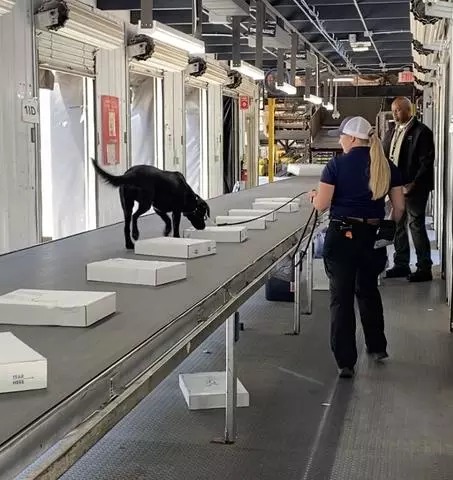Learn about our Canine Parcel Inspection Program

Everest: our detector dog
Every year, billions of dollars worth of agricultural products are shipped into and through California. Incoming shipments of items like seeds, plants, soil, fruits and vegetables can present a major risk to California’s agricultural industry, the environment, and our backyard gardens if they are sent from areas that have pests or plant diseases we don’t have here in California. Incoming shipments of agricultural products are an easy way for insects, plant diseases, and weeds to hitch-hike a ride into the State.
Every day, Agricultural Biologists visit parcel facilities and inspect packages containing agricultural products. But, there are many packages that are not labeled on the outside of the box and we have no idea whether or not they contain agricultural products.
To combat this problem, the County of Santa Clara’s Division of Agriculture deploys a canine parcel inspection team. Our detector team consists of our canine, “Everest”, and several agricultural biologists. We take Everest to parcel facilities and she scratches at parcels containing agricultural products to alert our dog-handler. The package is then inspected by a biologist to determine if the agricultural products are allowed into California.
To learn more about California’s dog teams, you can visit the California Department of Food and Agricultural website. To see a video of our dog team in action click here.
Everest's bio
Santa Clara County Agriculture Detector Dog, Everest, was born on September 26th, 2021. She is a black lab who was procured by the United States Department of Agriculture (USDA) to be trained as a detector dog from a vendor in South Carolina along with two litter mates, Berty and Ziggy.
Everest is a small, very friendly girl who loves her job. She is very food driven which made her a great candidate for the Agricultural Detector Dog Program. She was transferred to the USDA National Detector Dog Training Center (NDDTC) in Newnan, Georgia to begin her training in January of 2023. During this training, Everest learned to alert on five initial odors: apple, guava, citrus, mango and stone fruit. Since her placement into the field, Everest has now added cut flowers, potted plants, longans, papaya, and other tropical fruits to her list of odors. The more experience she has in the field, the more odors she adds to her list. Everest is trained to “alert” on the boxes by scratching three times on the box containing any odors she knows. She is rewarded with treats when her alerts are correct. Her largest find to date was 9 unmarked boxes containing various potted plants from Florida. Each plant contained multiple invasive pest species that are not allowed into the state of California.
When Everest is not working, she enjoys playing in any water she can find, playing fetch with a tennis ball or chewing on a Wubba Kong. She also enjoys long hikes! Her favorite treats are freeze dried chicken hearts. Everest also enjoys meeting new people and getting all the scratches she can get!
Everest's training

Everest and her handler were both trained at the USDA detector dog training academy in Georgia, but their training doesn’t stop there. To keep up on her skills, Everest goes through routine practice drills on 5 primary training fruits: apple, guava, citrus, mango, and stone fruits.
From these basic 5 smells, she has learned what an "agricultural smell" is and she has learned very quickly that she gets rewards for flowers, plants, insects, soil, animals, mushrooms, etc. To Everest, her job is a game and she is constantly trying to increase the number of rewards she receives (treats!)
In addition to practicing these skills in our County, Everest meets up with 5 northern dog teams every month to practice their skills. It also gives them a chance to interact with the other dog teams.
Everest and our team at work
Our dog team consists of Everest, her handler, and an agricultural biologist.
During a typical inspection, Everest's handler will direct her through hundreds of packages. Everest uses her powerful nose to sniff each package. Once he detects the scent of an agricultural product, Everest will alert our handler by scratching on the package.
When Everest alerts on a package, the assisting biologist takes the parcel off the belt and will inspect the contents to determine if it is allowed into California. All agricultural material shipped into California must comply with quarantine regulations, labeling regulations, and must be free of invasive species of insects, plant diseases, and weeds.